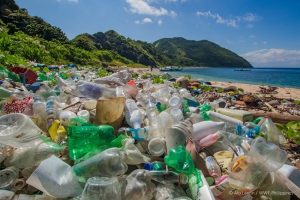The Economic Community of West African States (ECOWAS) is stepping up efforts to combat plastic pollution across the region.

A two-day workshop in Accra, Ghana, which concluded on Tuesday, September 17, 2024, focused on developing a regional action plan for plastics management and promoting a circular economy.
The workshop brought together representatives from member states’ environment and finance ministries, along with private sector and civil society stakeholders.
The World Bank’s Programme for Blue Economy (PROBLUE) supported the initiative.
Yao Bernard Koffi, acting director of environment and natural resources at ECOWAS, emphasised the transboundary nature of plastic pollution.
“The management of plastics requires national, regional, and global actions given the transboundary dimension of the resulting pollution,” Koffi said.
Michelle Keane, World Bank acting country director for Ghana, Liberia, and Sierra Leone, highlighted the bank’s commitment to regional solutions.
“Beyond country-level efforts, the World Bank supports harmonized regional solutions to combat plastic pollution at scale,” Keane said.
She added that the bank is “dedicated to supporting ECOWAS in the development of a Regional Action Plan on Plastics Management and Circular Economy.”
The initiative follows ECOWAS’ adoption of regional regulation on plastic products and waste management in December 2023. It also aligns with global efforts to negotiate an international treaty to combat plastic pollution by the end of 2024.
Despite lower per capita plastic waste compared to OECD countries, West Africa is estimated to be the second-largest source of ocean plastic pollution from rivers.
The World Bank warns that the region could become the largest contributor to poorly managed plastic waste globally by 2060 without intervention.
By Winston Mwale, AfricaBrief
